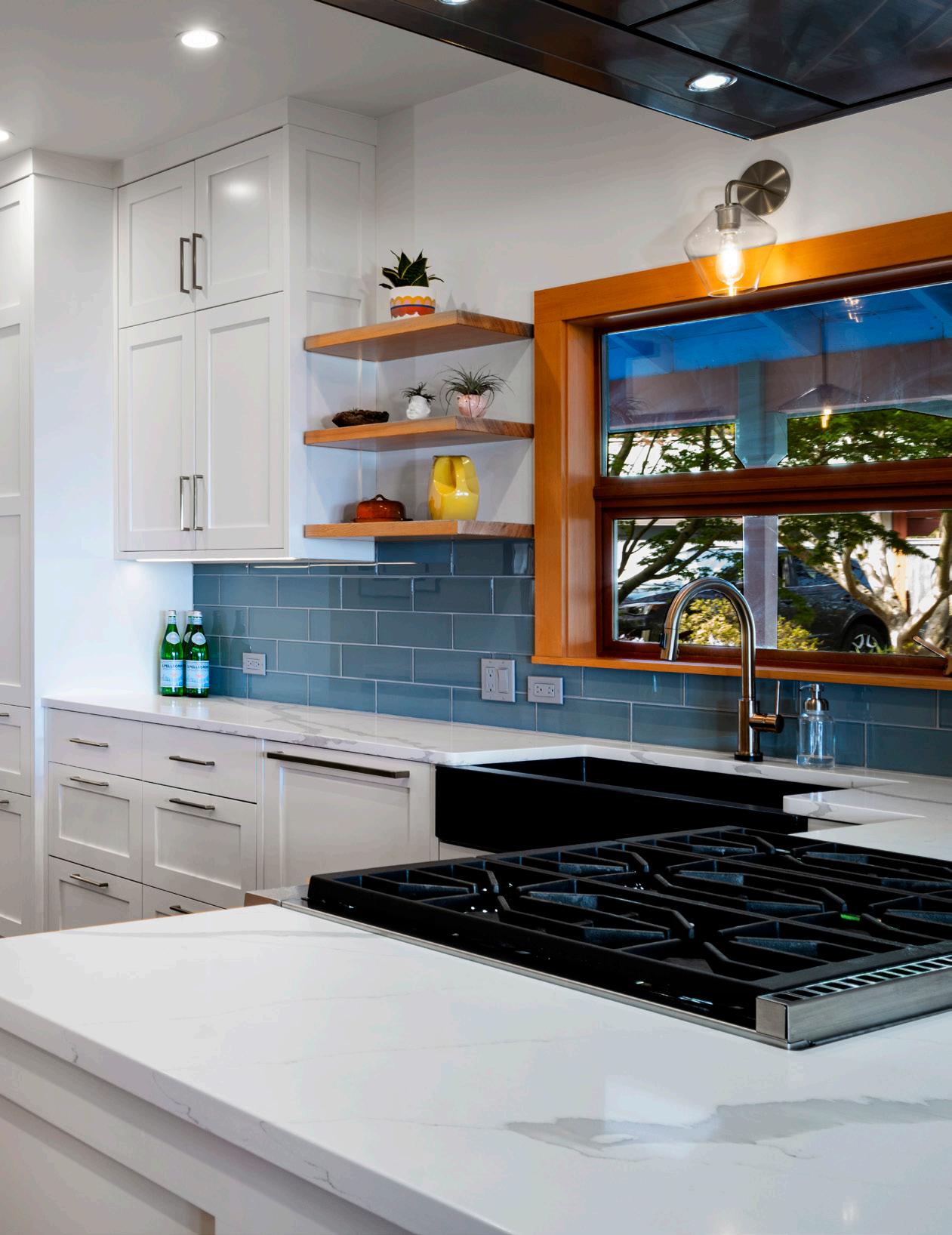
5 minute read
OPPORTUNITY
Brandon Keller is one of those people who, when life takes a tack, cheerfully leans into it, making the curve look like it was all part of the grand plan. Perhaps he achieves his Zen demeanor from all the time he spends at the local dog parks after work with his year-old lab, Eddie.
he bright-eyed and affable Keller is founder and project manager at Cogwheel, a relatively new and flourishing construction company that primarily focuses on residential and commercial construction and remodeling but counts a fair number of special projects and offshoots in its portfolio, too.
Advertisement
Keller has been on Bainbridge since 1995, working his way through its school system and then beyond to Evergreen State College in Olympia, where he earned his degree in entrepreneurship and economics, earning some credits by taking on internships on Bainbridge. One of the first was through the Rotary Club of Bainbridge Island’s Waypoint Project—billed as a gateway to the island—at Winslow Way and Highway 305.
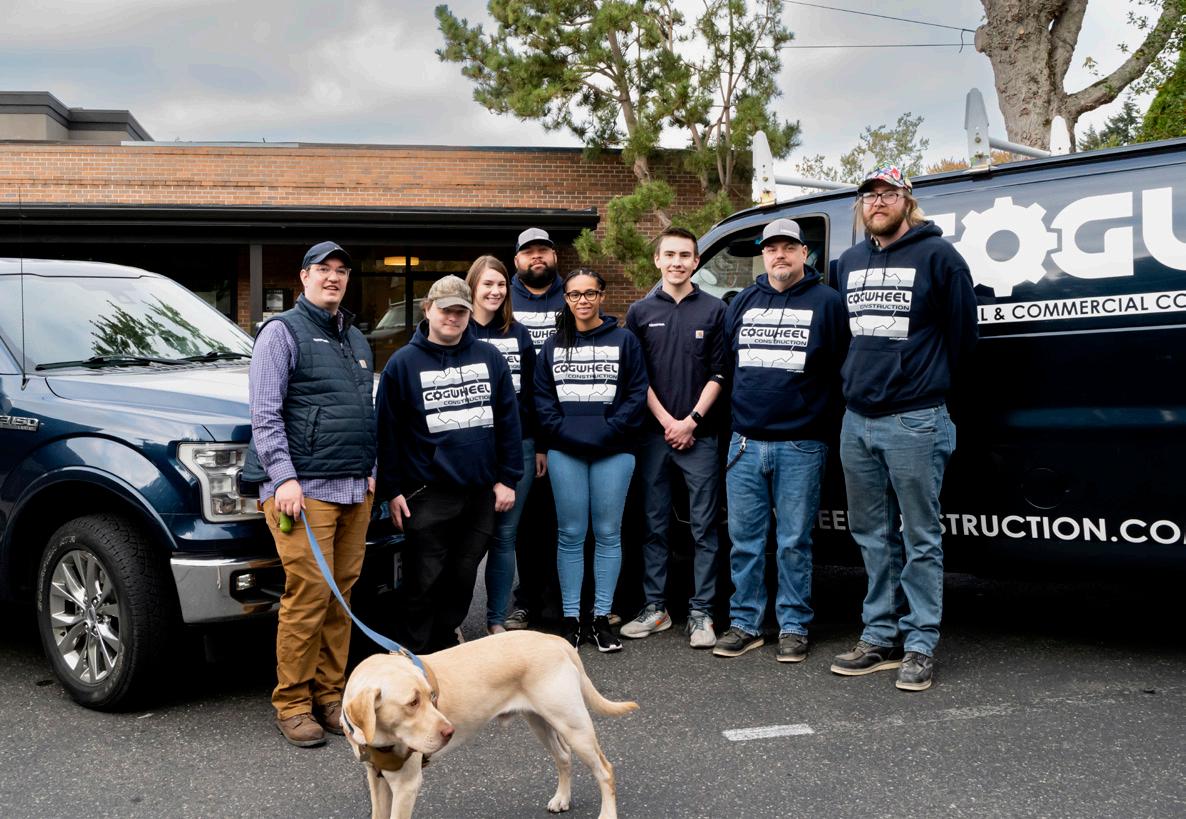
“I helped with the fundraising push and mailouts,” he said. After the project wrapped, Keller joined PHC Construction, which had been the volunteer contractor on Waypoint. “The only thing that they had for me was on the LEED certification of the art museum,” he said. “That started my career.” Keller spent more than five years with PHC working on a number of the island’s public projects such as the award-winning Grow community and BARN among others, and in the process, joined BIMA’s facility building and grounds committee.
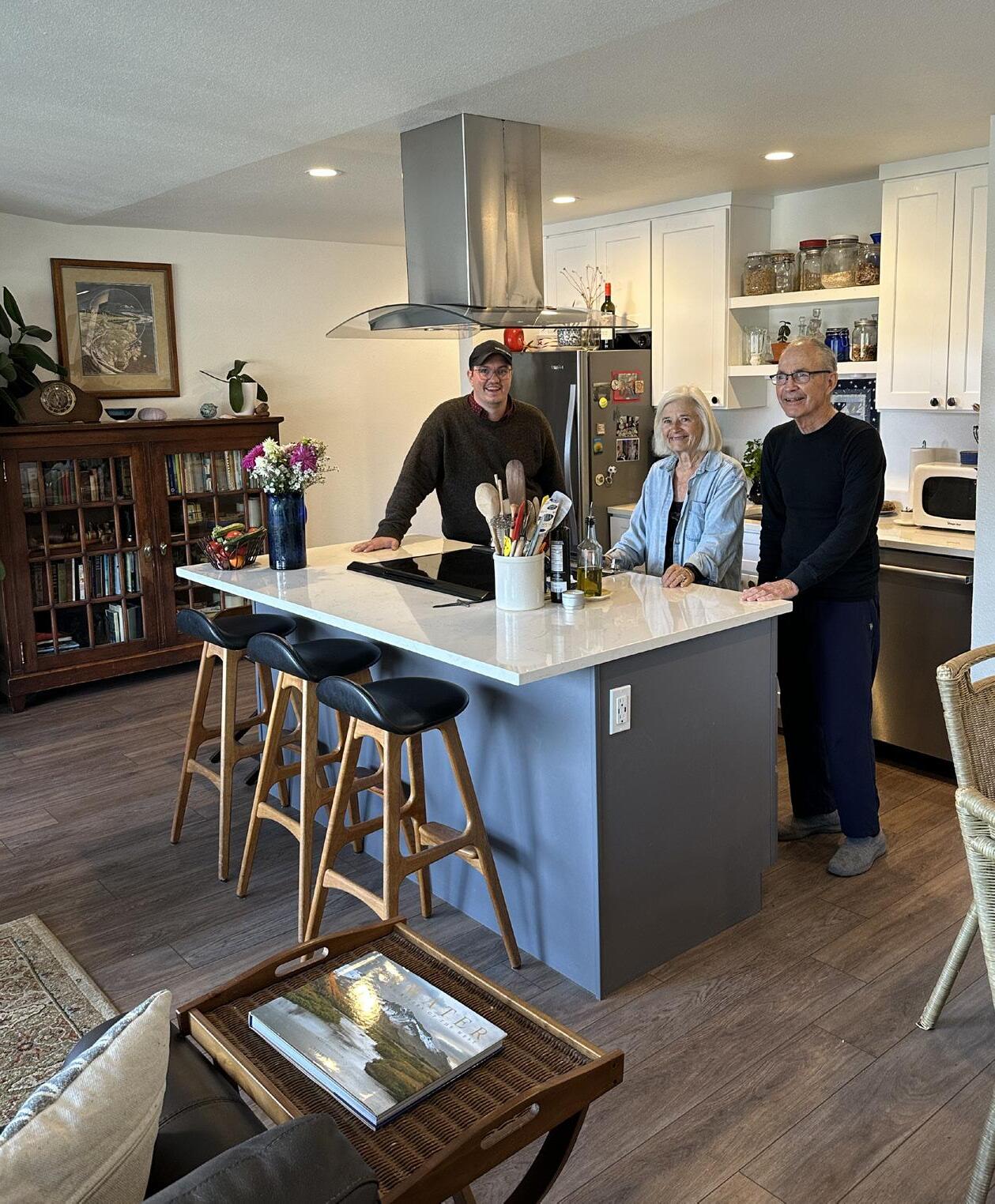
Keller next moved to Clark Construction, starting as project manager for Phase 2 of the Roost community on the west edge of Lynwood Center, eventually transitioning into management of its “small” projects, defined as anything under $1 million in value. “That was a really good experience,” he said. “I met a lot of people, and it was a great fit for a long time, but I wanted to try a Seattle company,” a move which took him to Compass General Construction as a senior project engineer. “I did that for exactly a year and then got laid off when COVID impacts scared the banks.”
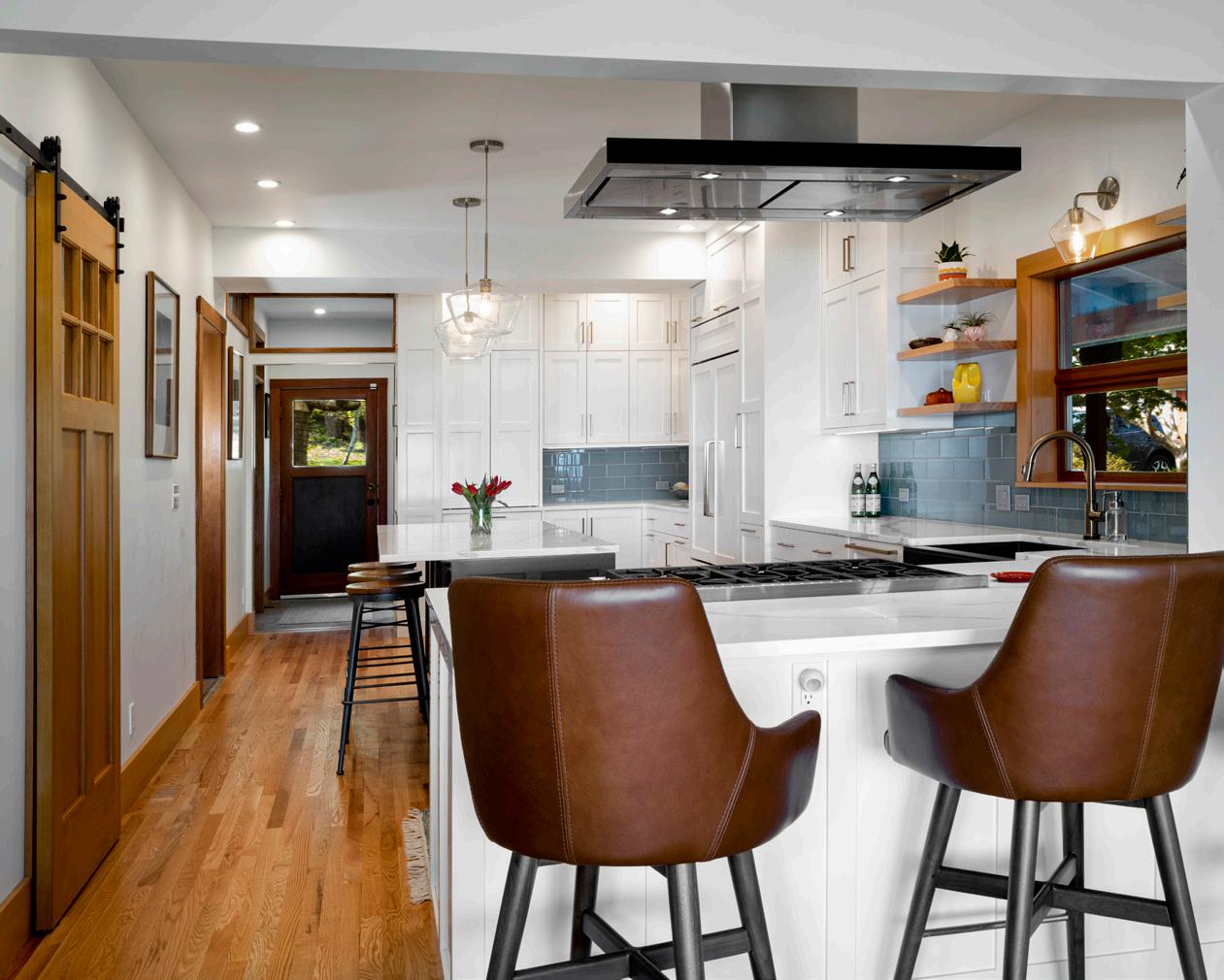
Shortly after losing his job, Keller received a letter from the state, notifying him that that if he started his own business, it would pay him full-time unemployment benefits through its Self Employed Assistance Program while the company found its legs.
“I decided I needed to become a general contractor full-time because I had all the relationships from the previous eight years,” he said, noting that when he was at PHC, many of its investors and clients had encouraged him to create his own entity.

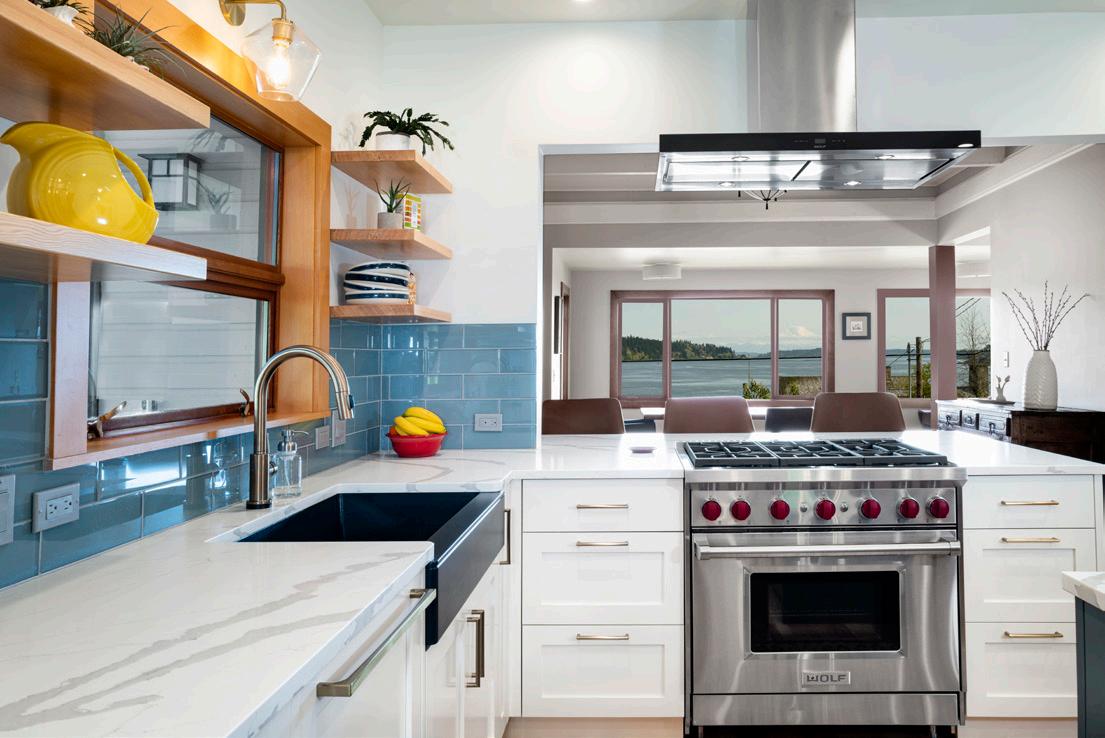
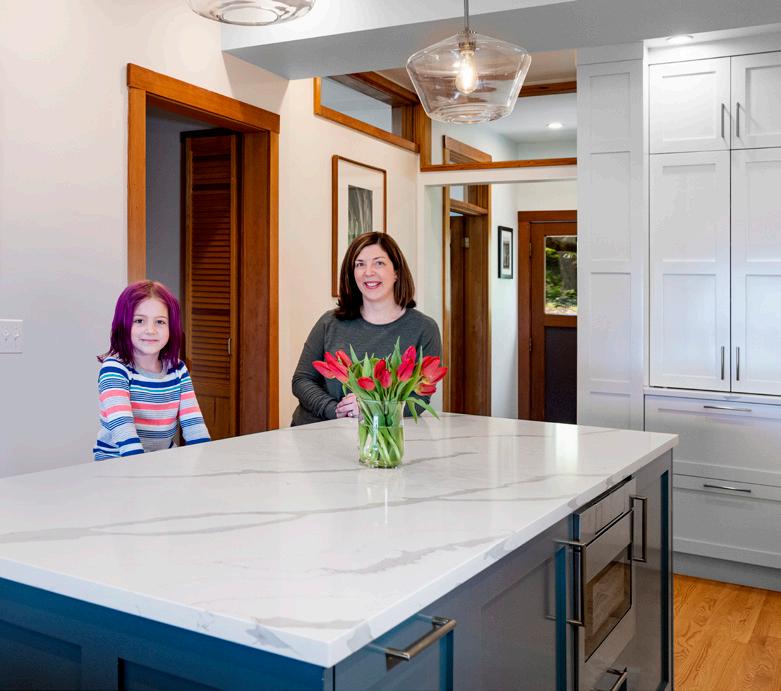
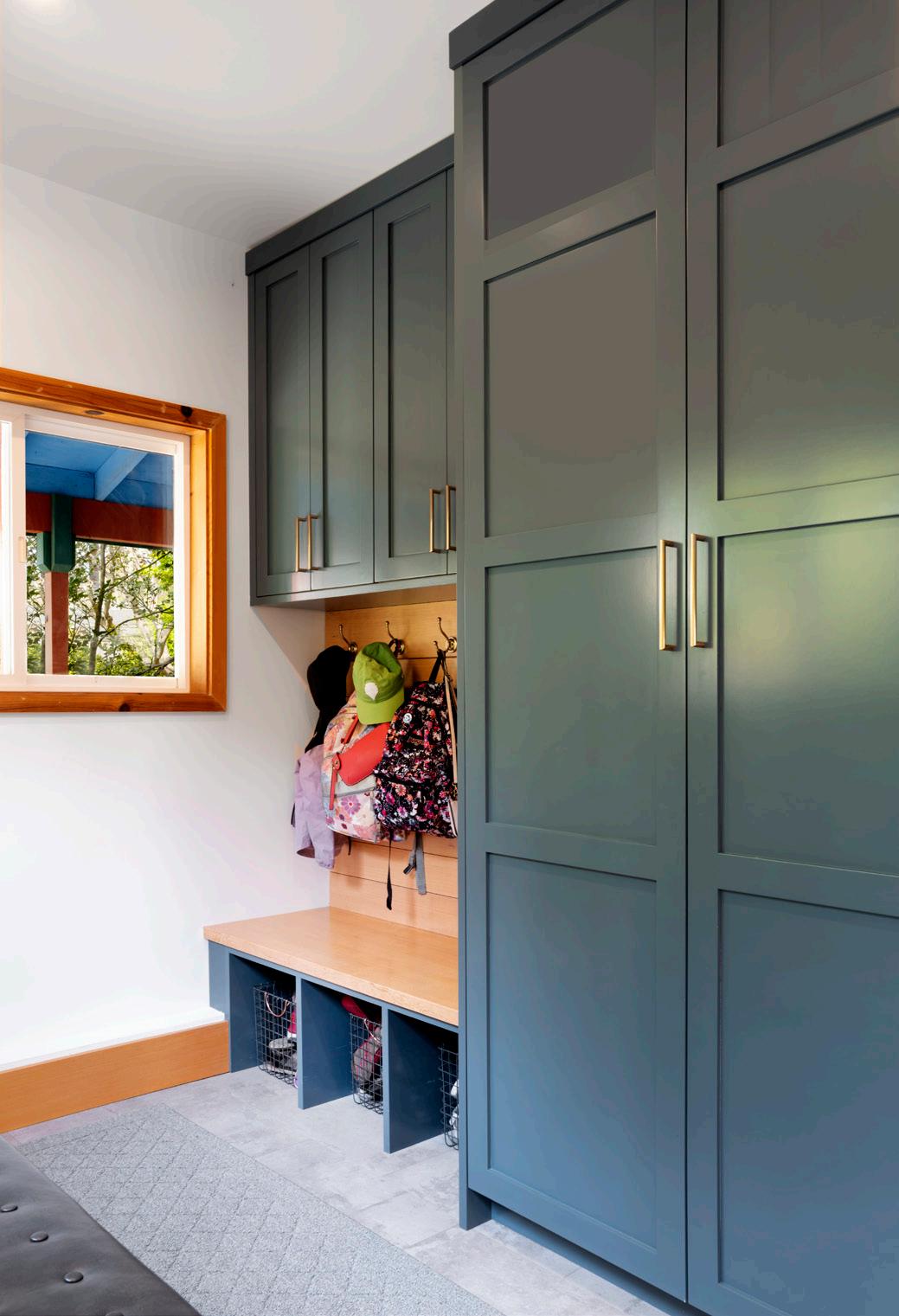
By any measure, it’s going well.
“Basically, I started with no money and a $10,000 credit card limit and was able to get to $500,000 in revenue,” he said. “Our first year was one person and now we're up to nine employees and past our $2 million revenue goal.” Currently its residential remodel projects account for around 70 percent of Cogwheel’s work, while commercial business makes up the rest.
Keller credits Cogwheel’s early success to it being islandbased, along with its transparent pricing model of cost-plus time and materials. Much of what the company does is kitchen and bathroom remodels, which he pointed out have some of the greatest impact on a home’s livability as well as reaping a good return on investment for homeowners.
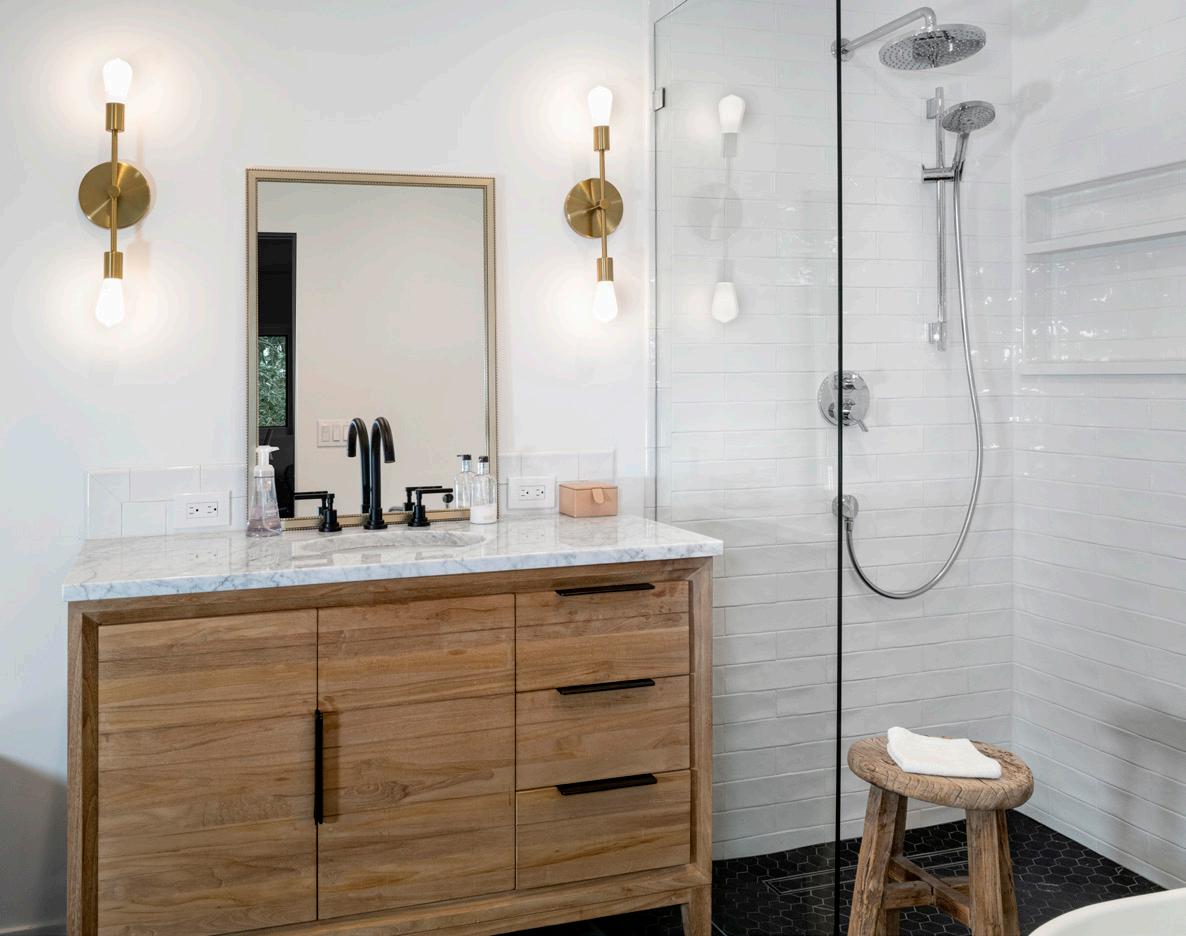
Loanna Day and her husband Jon worked with Cogwheel to remodel their home at Winslow Green, a condominium they had previously used as a rental. The Days renovated it before they moved from Seabeck in 2021. “We appreciated right from the start how well Brandon listened to our input and ideas. He was good with details and came in on time and very close to budget even though there were some challenging tasks,” she said. “He had a good rapport with his workers and tradesmen, his people skills are excellent. He is a skilled contractor on many levels.”
Cogwheel’s scope continues to expand. “This year, a fair amount of our projects have been full interior remodels,” he said. “We’re getting more $500,000-plus remodel projects.
Obviously, there's always a budget, but we've been learning that the higher price point projects are more worried about getting the project done the right way.”
Keller predicts the remodeling trend won’t slow down any time soon. “We're going to see a lot more repurposing of existing structures. Land is finite, and a lot of it is developed,” he said. “There certainly are opportunities to demo and build new, but from a scale and cost point, there's a lot you can do by just remodeling the space.”
He believes his approach has been key. “In every remodel, there is an abundance of decisions, and the speed at which they're made is very important,” he noted. “The most expensive part of construction is rework. So, if somebody makes a decision and doesn’t like it, doing it again is where you lose value. We try to get ahead of that as much as we can.” He also explained the downside of delivering a job out of sequence. “Every project that succeeds has some momentum and becomes a scheme of sequencing and timing. Nobody wants to pay for a bunch of extra mobilizations to get people doing little half-day's work.”
Keller said that one of his most important tools has been bringing in interior designers before projects get rolling. “One of the biggest misconceptions in construction is that people can't afford an interior designer, but the reality is, a lot of them can't afford not to. The designer makes sure what you're putting in makes sense,” he said. “They're good about showing you where you should spend your money. One of their biggest values is defining the project and coaching the owner through it.”
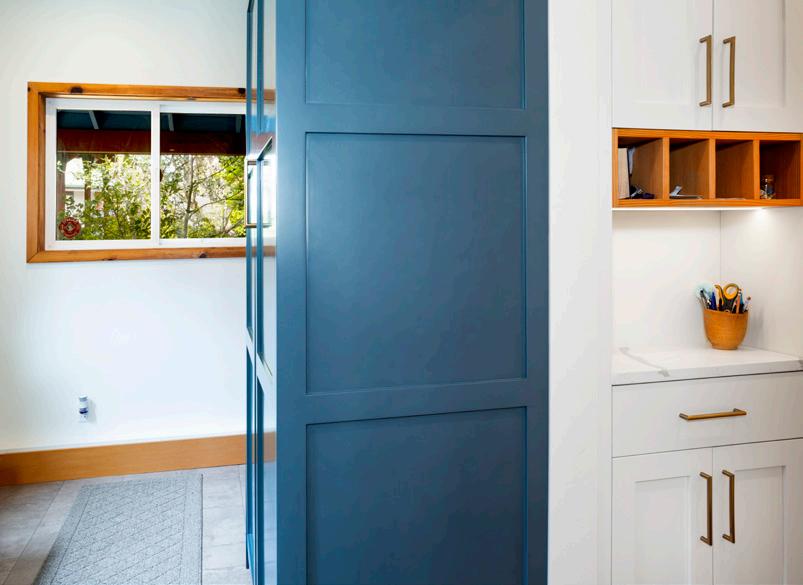
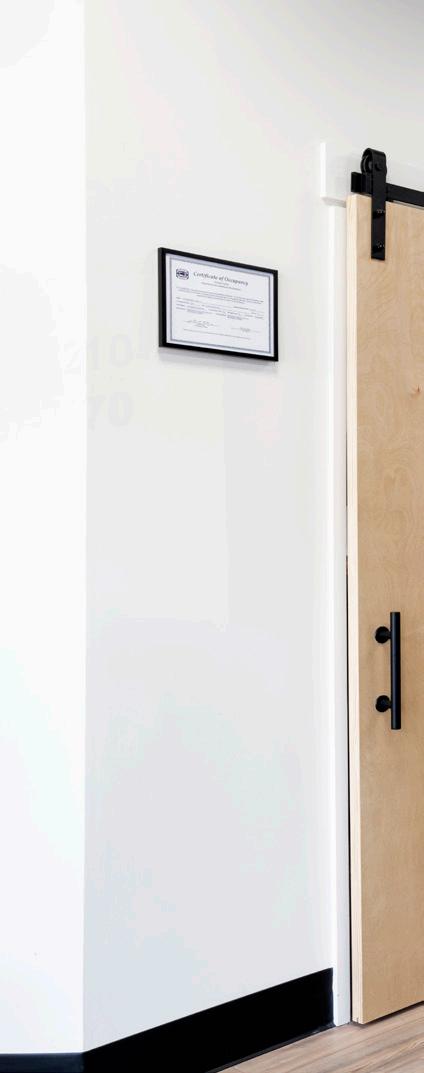
Tamah Burke, designer and owner of Color Sanctuary, described working with Keller as refreshing. “Cogwheel is open to creative ideas and resolutions, a uniqueness not always found with other contractors.” she said. “They allow Color Sanctuary to offer thoughtful integrations. Brandon knows having this as part of his process will give him an advantage.”
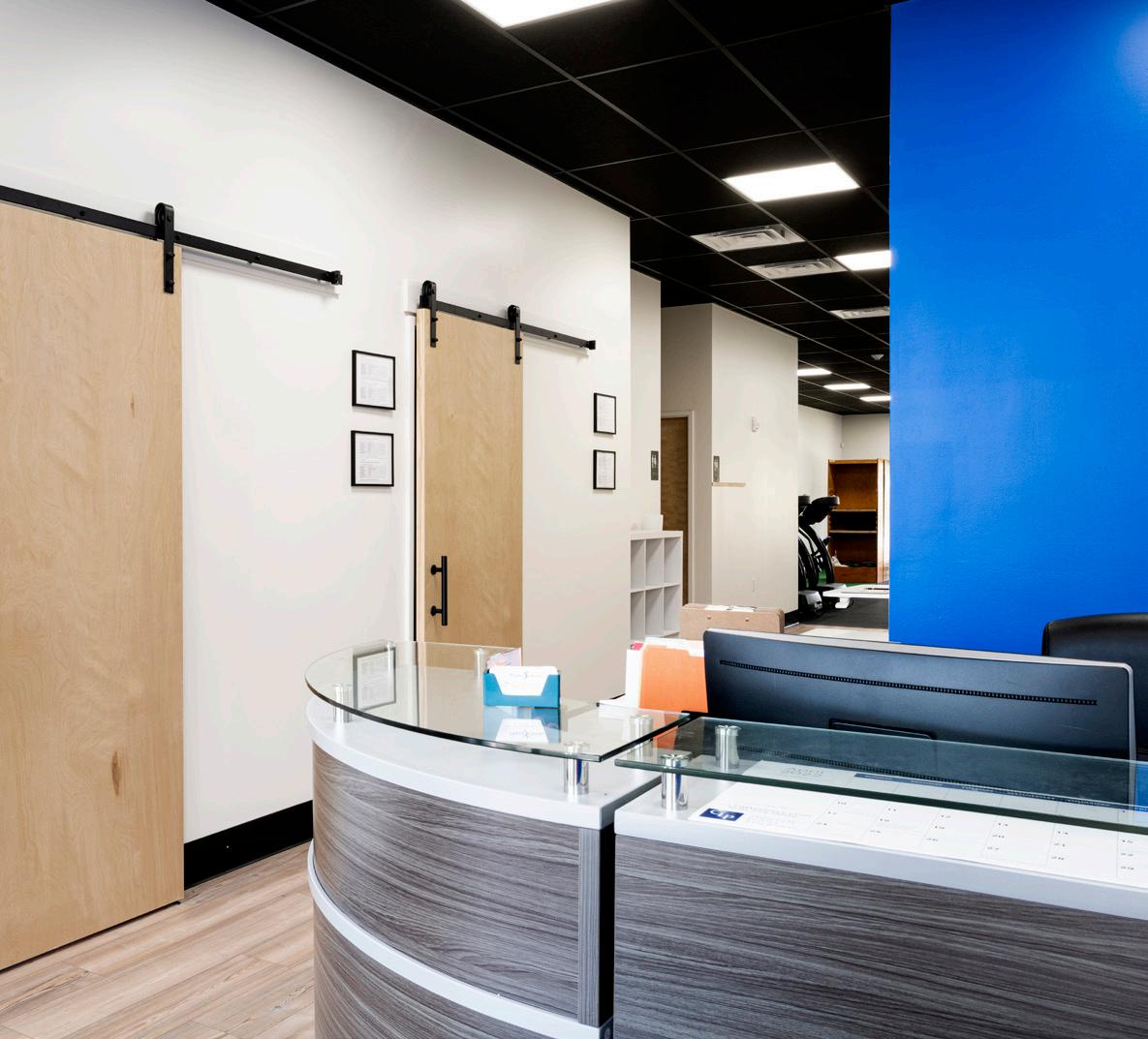
Kim McCall of Kim McCall Design sees their partnership as an asset, too. She first learned of Keller when another contractor referred him. McCall said that the job was for a waterfront estate on an estuary and that the client was particularly scrupulous. “I needed to find somebody I could feel comfortable with, that was going to be able to do a good job and listen and execute.” Although she said the job was primarily cosmetic, Keller’s team also identified and replaced a failed structural beam. “It would’ve been catastrophic to the structure over time.” Cogwheel also found a serious water issue. “There is a large pond, and its water was mixing into the main water line in the home. Two major saves!”
In addition to residential work, Cogwheel has added some high-profile commercial jobs to its portfolio, including PhysioWorks’ new location in Silverdale and locally, BIMA Executive Offices on Madrona Way, TR L’Atelier on Winslow Way and Sisters’ Cider House on Hildebrand.
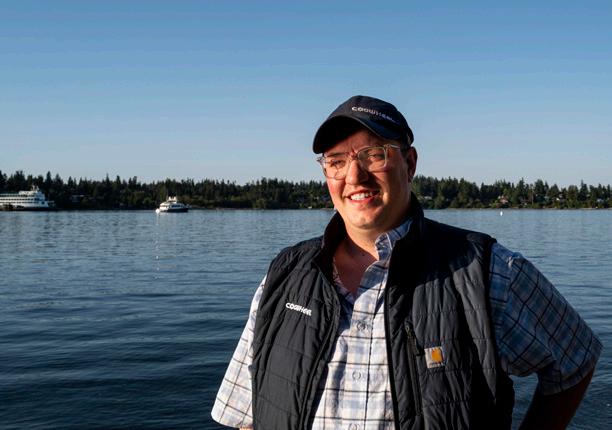
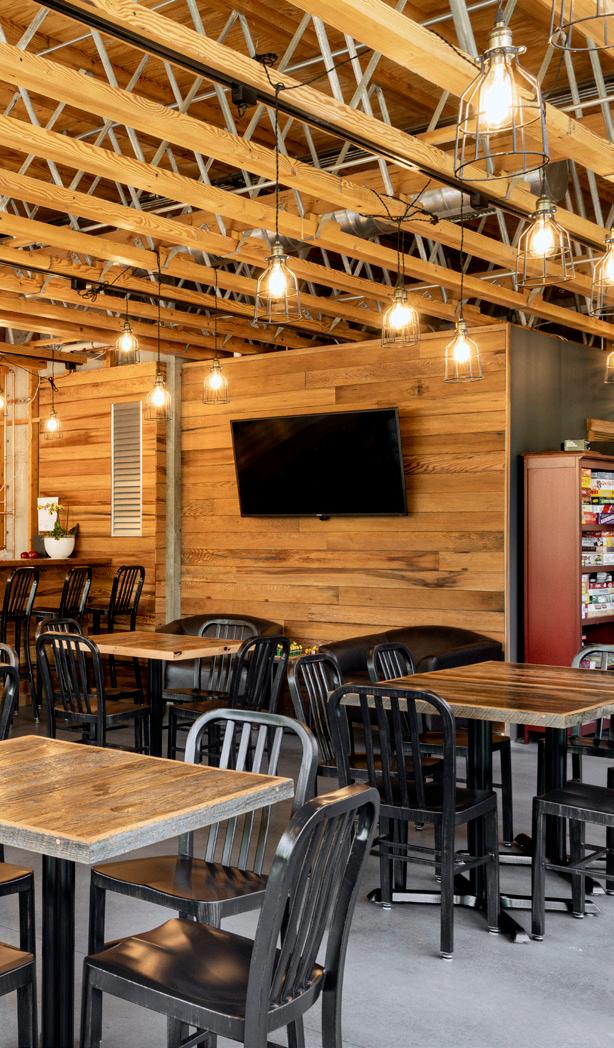
Putting the right team together has been vital and will be even more so as Cogwheel continues to grow. “One of my mantras is that we all share in the victories and defeats,” he said. “We were kind of bootstrapping it the first year. It was basically me and a couple part-time helpers. Now that we have a team, we continue to formalize and refine our process. Our goal is to be one of the big four contractors on the island.”
Cogwheels’ blue work vehicles are increasingly out and about around town. Their big white logo is hard to miss. “For me, Cogwheel means that you're an element of the bigger machine,” said Keller. “A cog doesn't do really anything on its own. You need at least two of them. And then all of a sudden you have two, and then you have leverage.”
Window Coverings











